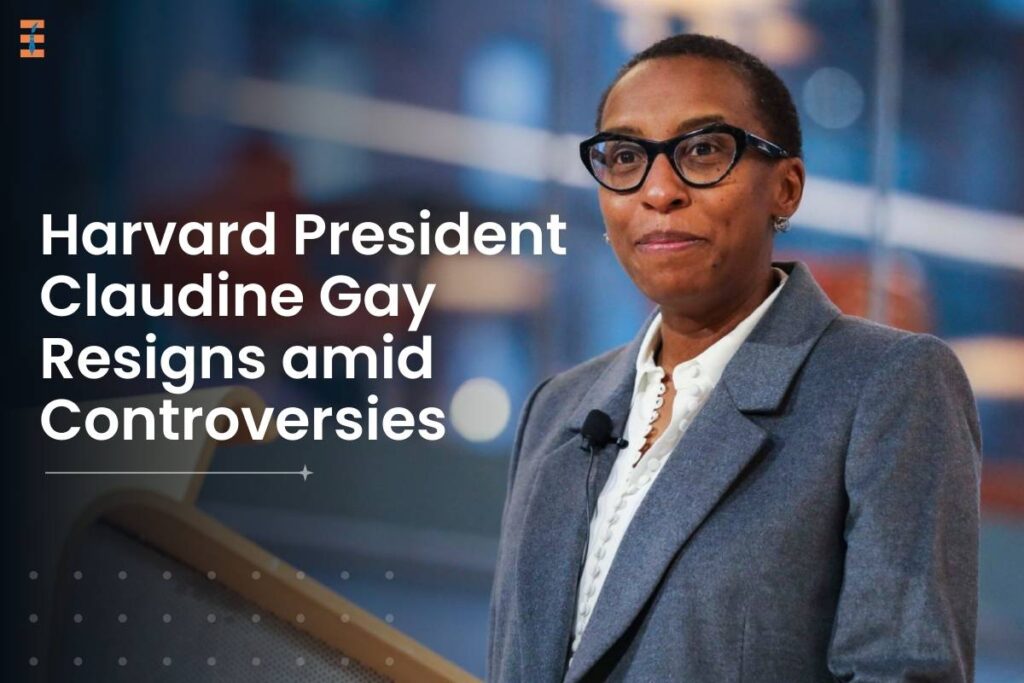In a surprising turn of events, Claudine Gay, Harvard University’s first Black president and only its second woman president, has tendered her resignation amid allegations of plagiarism and mounting criticism related to recent controversies. This abrupt decision comes merely six months into Gay’s presidency, making it the shortest in Harvard’s rich history.
The catalyst for this unexpected departure can be traced back to last month when Gay faced backlash for her testimony about antisemitism on college campuses before a congressional committee. The controversy deepened as many elite schools, in response to the Hamas attack against Israel, chose a stance of “institutional neutrality.” However, statements by students and faculty regarding Israel and the Palestinians garnered national attention, fueling distrust in higher education.
The Terrorist Atrocities Perpetrated by Hamas
Harvard, renowned for its academic prestige, found itself entangled in the aftermath of a letter signed by over 30 student organizations expressing solidarity with Palestinians. Claudine Gay’s response condemning “the terrorist atrocities perpetrated by Hamas” and her assertion that student opinions did not reflect institutional stances did little to quell the rising tensions.
The situation escalated further during Gay’s testimony before the House Education and Workforce Committee alongside fellow presidents Sally Kornbluth of MIT and Elizabeth Magill of the University of Pennsylvania. Lawmakers criticized their evasive responses about their campuses’ stance on antisemitic threats, leading to Magill’s resignation just two days later.
Simultaneously, rumors surfaced about potential issues with citations in Gay’s doctoral thesis from the 1990s. Allegations of plagiarism, notably by conservative figure Chris Ruffo, added fuel to the fire, intensifying calls for Gay’s resignation. Despite Harvard Corporation’s vote in support of her continued tenure, external pressures from influential figures and donors compelled Gay to step down.
Claudine Gay stated, “After consultation with members of the Corporation, it has become clear that it is in the best interests of Harvard for me to resign.” The Harvard Corporation expressed acceptance of her resignation “with sorrow.” The controversy surrounding Claudine Gay’s tenure raises questions about the intersection of free speech, politics, and academic leadership.
Harvard President Claudine Gay Resigns Amid Controversies
Lack of Trustworthiness in Elite Higher Education
Conservatives celebrated Claudine Gay’s resignation, attributing it to their efforts and using the incident to reinforce claims of a lack of trustworthiness in elite higher education. Representative Elise Stefanik criticized the university presidents’ testimony, claiming a moral failure in addressing the question of genocide against Jews.
Representative Virginia Foxx, who chairs the Education and the Workforce Committee, emphasized that the committee’s inquiry would persist. Foxx contends that a “hostile takeover of postsecondary education by political activists, woke faculty, and partisan administrators” extends beyond one leader and requires ongoing oversight.
However, some voices within Harvard, including prominent Black faculty member Randall Kennedy, expressed sadness over Gay’s resignation. Kennedy highlighted the university’s inability to defend itself against a campaign of misinformation and intimidation.
Claudine Gay’s departure unfolds against a backdrop of broader discussions about the role of university presidents, the challenges of navigating geopolitical sensitivities, and the ongoing scrutiny of higher education’s ideological landscape. The evolving narrative at Harvard reflects the intricate interplay between academia, politics, and public perception.
Also Read: Department of Education Investigates Harvard over Alleged Antisemitism

